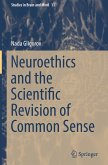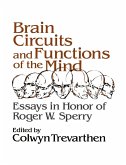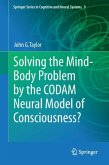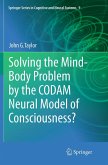The big question of how and why mindedness evolved necessitates collaborative,multidisciplinary investigation. Biosemiotics provides a new conceptual space that attracts amultitude of thinkers in the biological and cognitive sciences and the humanities whorecognize continuity in the biosphere from the simplest to the most complex organisms, andwho are united in the project of trying to account for even language and human consciousnessin this comprehensive picture of life. The young interdiscipline of biosemiotics has so far byand large focused on codes, signs and sign processes in the microworld-a fact that reflectsthe field's strong representation in microbiology and embryology. What philosophers of mindand cognitive scientists can contribute to the growing interdiscipline are insights into how thebiosemiotic weltanschauung applies to complex organisms like humans where such signs andsign processes constitute human society and culture.
"The chapters provide one of the best explorations of mind-as-process in an age where only empirical phenomena exist, i.e., where there are no extra-empirical things (naturalism). This wide-ranging exploration of an increasingly influential approach to understanding the meaning of 'mind' will interest philosophers, psychologists, neuroscientists, and cognitive scientists. Summing Up: Highly recommended. Upper-division undergraduates and above." -- (R. Paul Thompson, Choice, Vol. 50 (11), August, 2013)
From the reviews:
"The chapters provide one of the best explorations of mind-as-process in an age where only empirical phenomena exist, i.e., where there are no extra-empirical things (naturalism). This wide-ranging exploration of an increasingly influential approach to understanding the meaning of 'mind' will interest philosophers, psychologists, neuroscientists, and cognitive scientists. Summing Up: Highly recommended. Upper-division undergraduates and above." (R. Paul Thompson, Choice, Vol. 50 (11), August, 2013)
"The chapters provide one of the best explorations of mind-as-process in an age where only empirical phenomena exist, i.e., where there are no extra-empirical things (naturalism). This wide-ranging exploration of an increasingly influential approach to understanding the meaning of 'mind' will interest philosophers, psychologists, neuroscientists, and cognitive scientists. Summing Up: Highly recommended. Upper-division undergraduates and above." (R. Paul Thompson, Choice, Vol. 50 (11), August, 2013)









